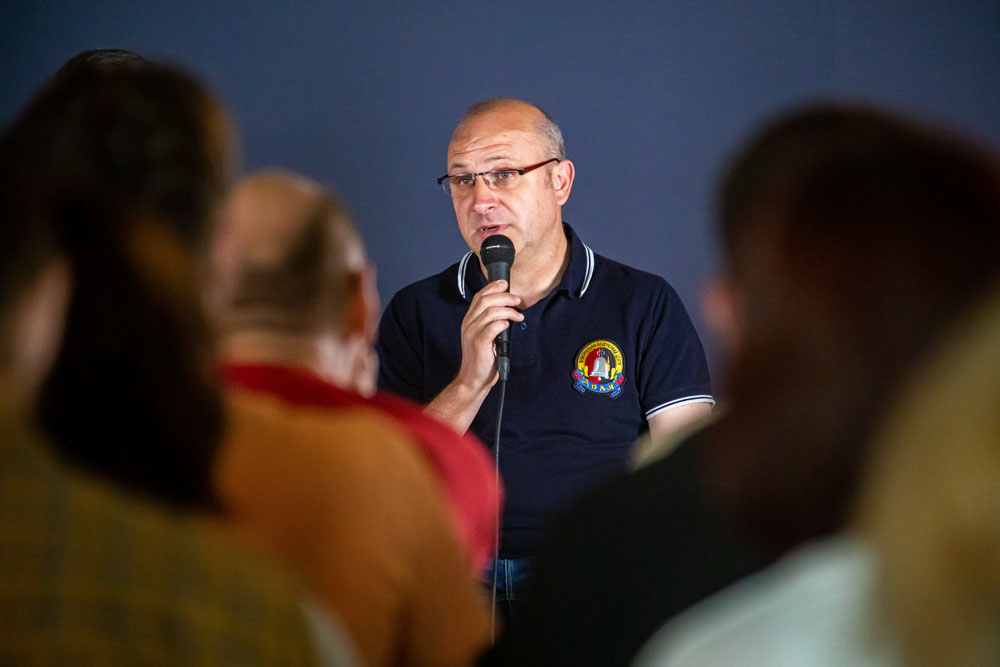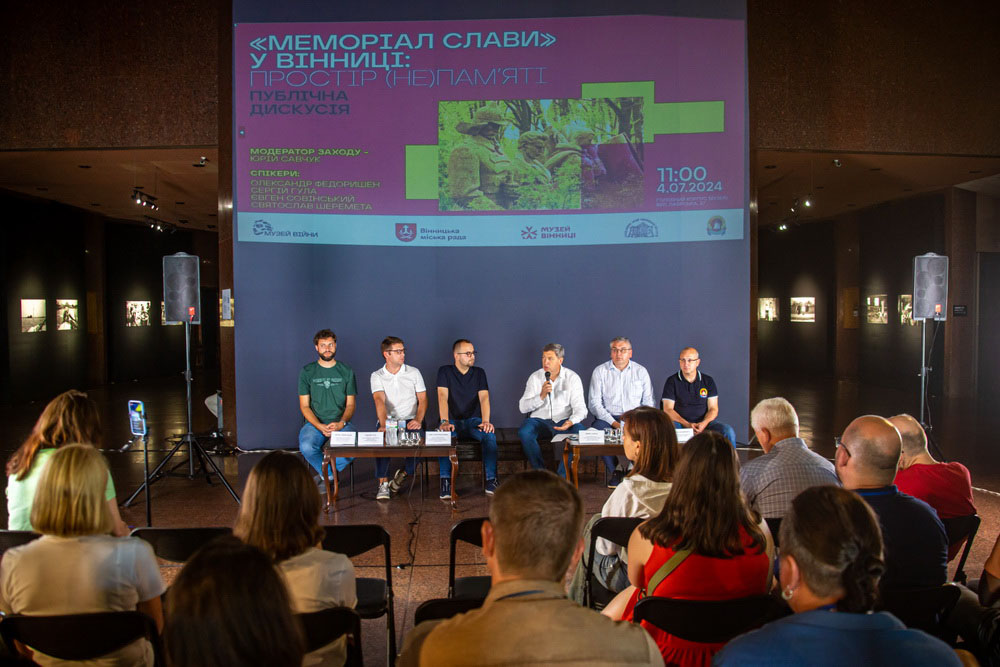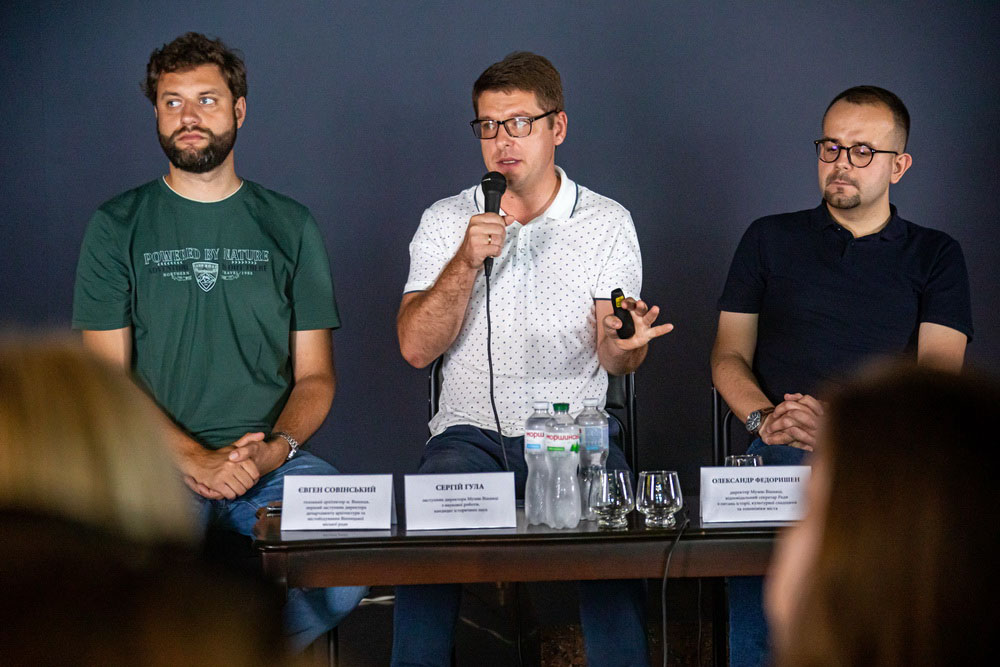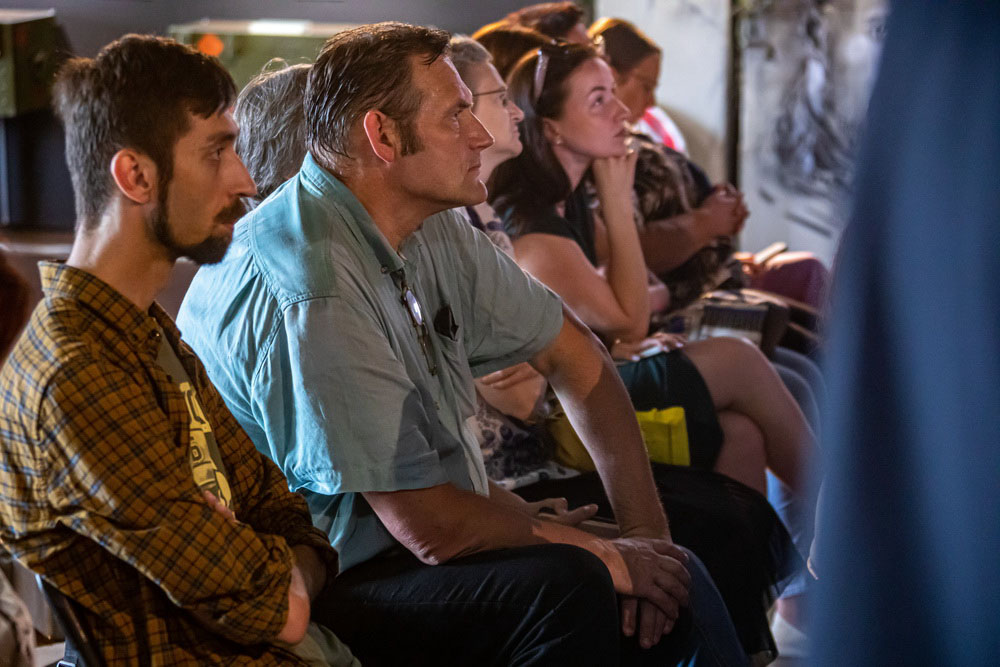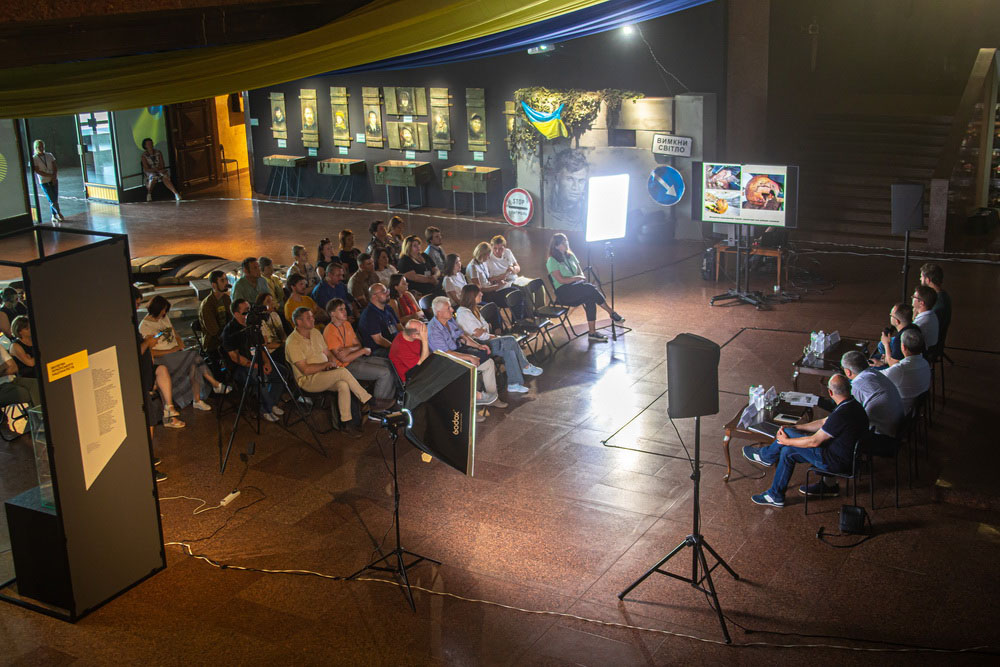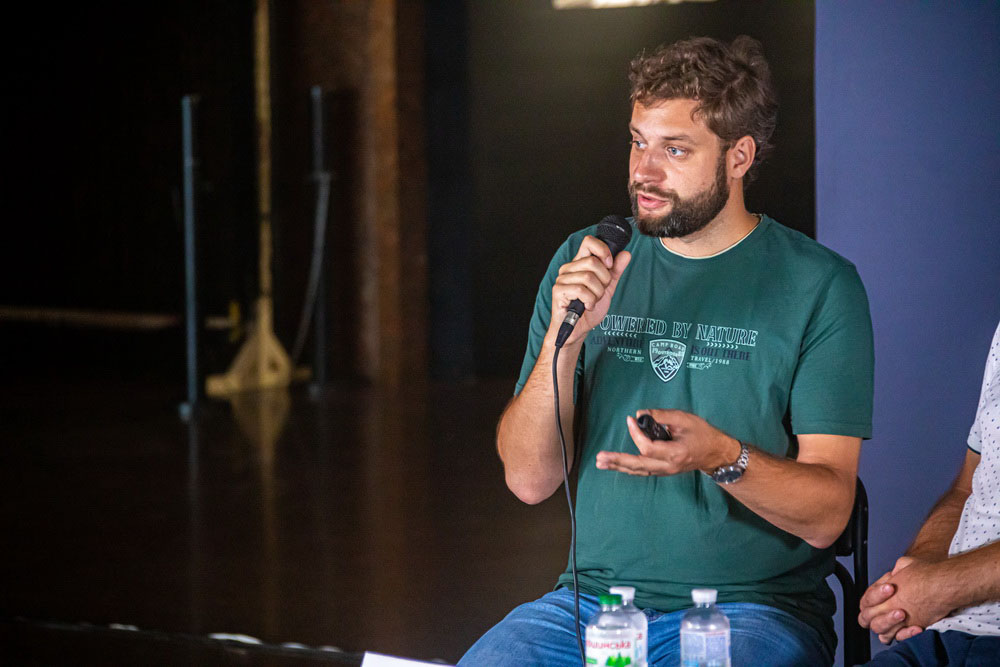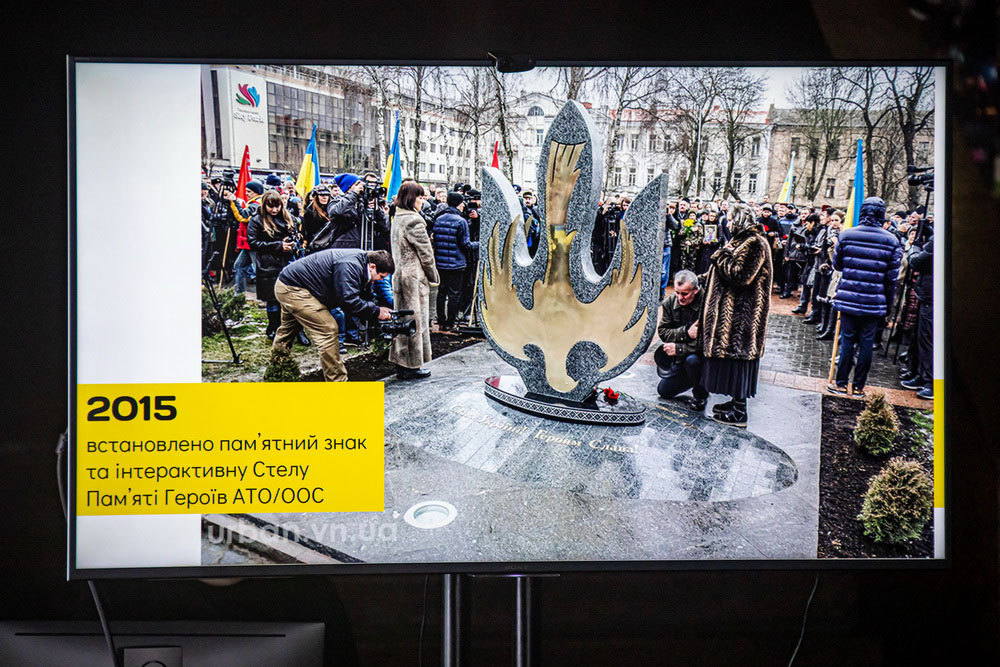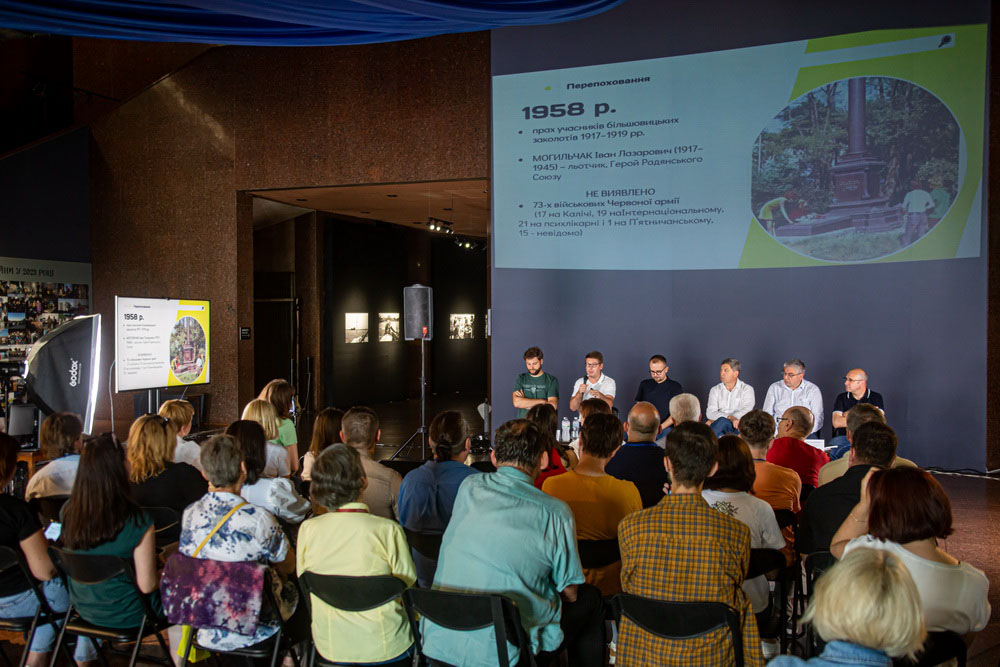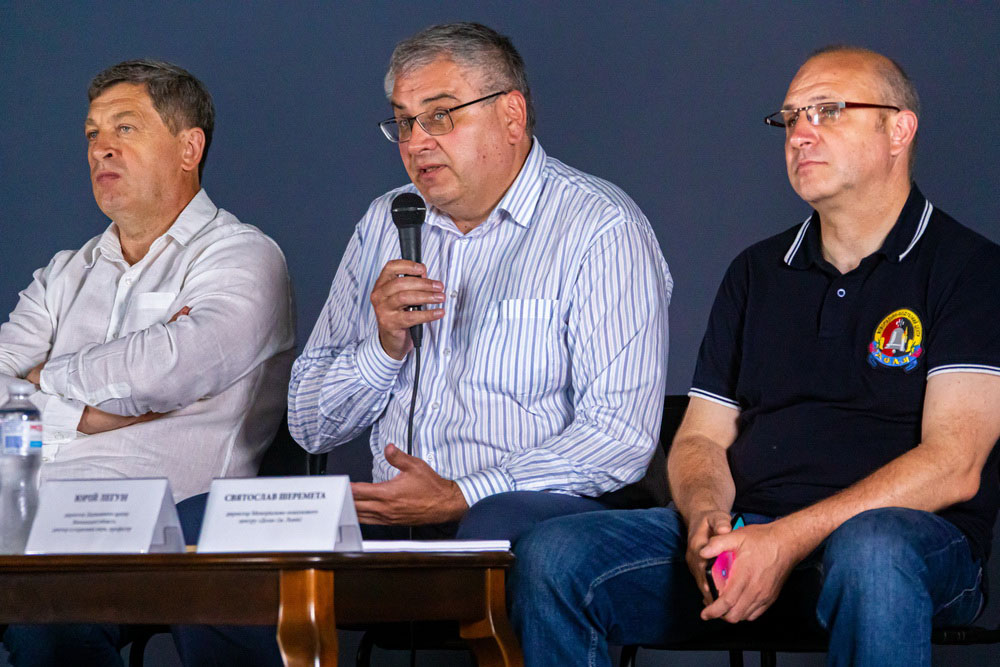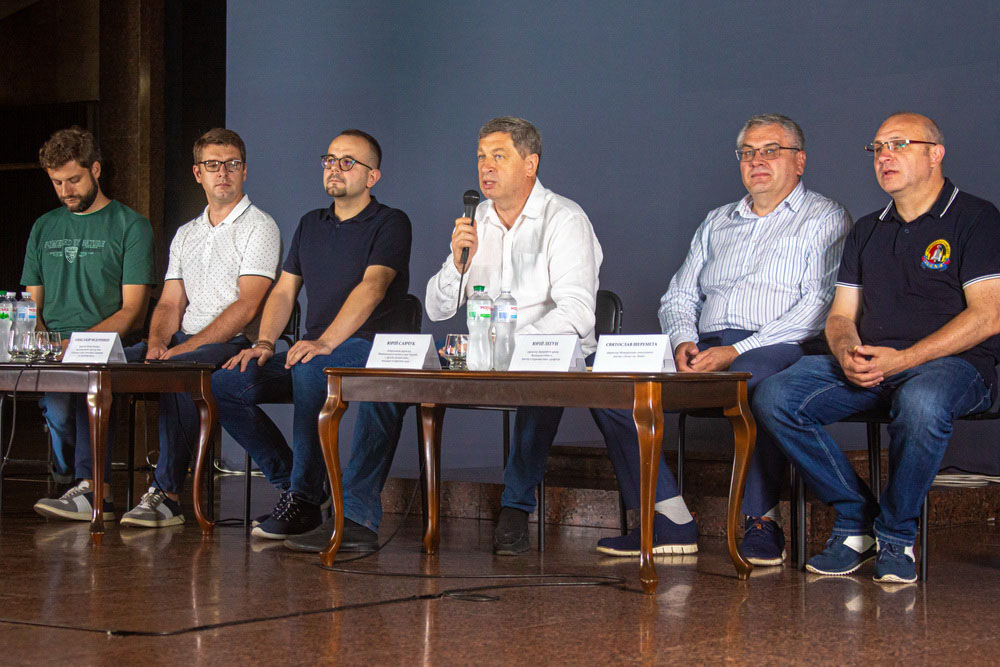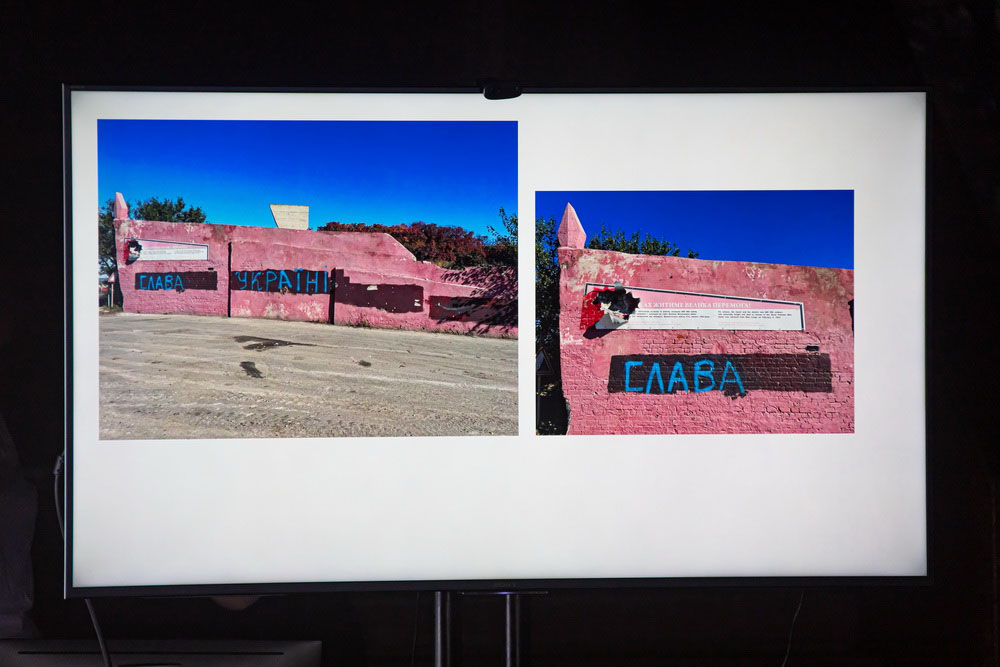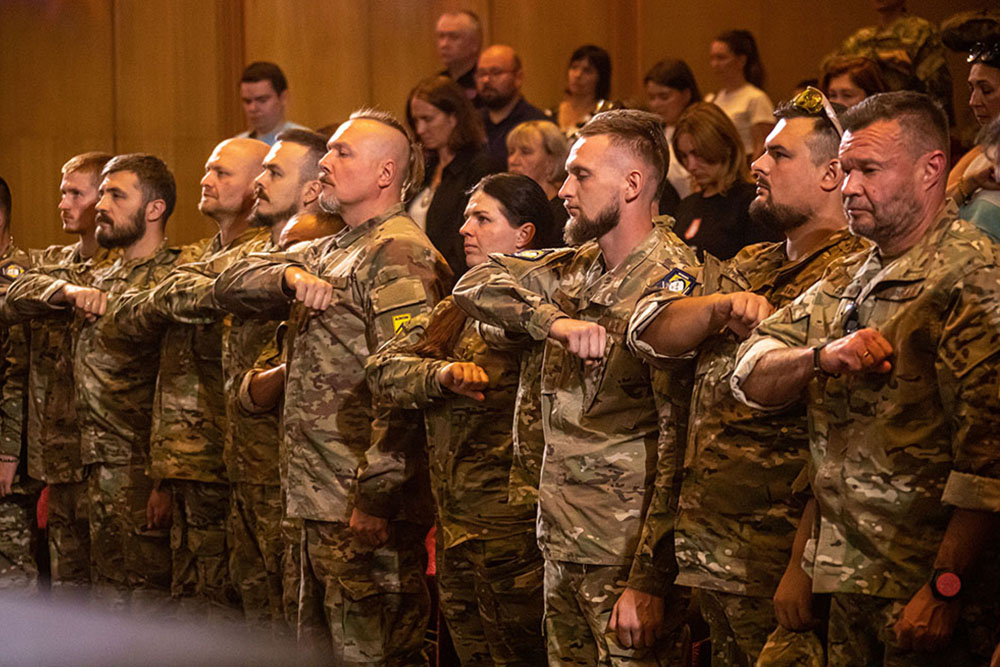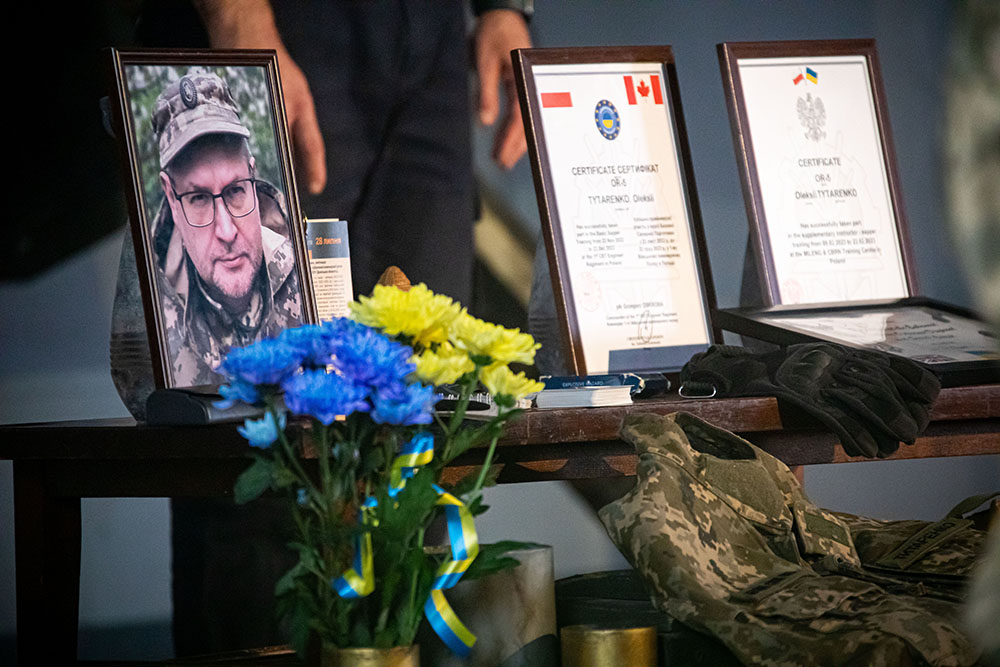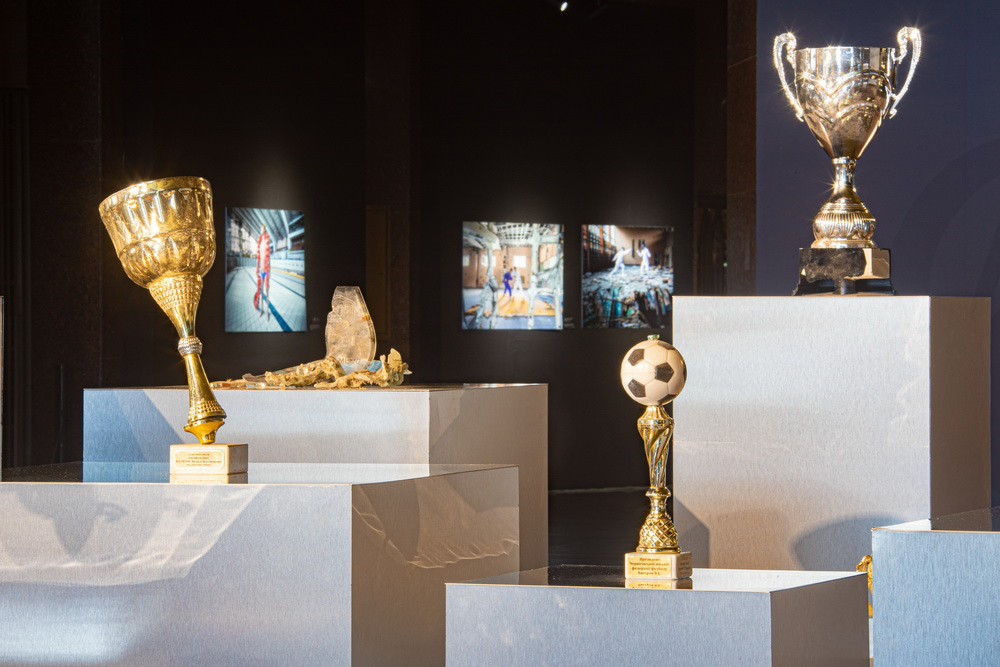The War Museum hosted a public discussion dedicated to de-communization and decolonization that intensified after the beginning of the full-scale invasion of Ukraine by russian troops.
Colleagues from the Vinnytsia Museum described the experience of redefining and rethinking the Glory Memorial on European Square. The case of the Three Soldiers monument was one of the first in Ukraine to be implemented comprehensively. Local historians and researchers have initiated and carried out changes in urban space.
Director Oleksandr Fedoryshen and Deputy Director Serhii Hula of the Vinnytsia Museum shared the history of this part of the regional center with the audience. Over the past two centuries, the purposes of urban space have transformed multiple times, leading to the need to analyze the landscape to dispel myths thoroughly. Historians conducted professional research and worked to identify whose graves were located in the city’s walking areas. Before the project could reorganize the space and memorialize the graves, specialists from various fields had to be involved.
Chief Architect of Vinnytsia, Yevhen Sovinsky, presented the architectural features of the memory site and the challenges that urban planners faced during the project. He explained how they addressed the issue of memorializing the people whose graves existed there before, including participants in the battles of the period of the establishment of Soviet power in the region and World War II, as well as fighters of the russian-Ukrainian war. He also described what the European Square will look like in the future.
The residents of Vinnytsia showcased a comprehensive decommunization process by organizing extensive search operations and uncovering and examining all the burials in the square using archaeological methods. Svyatoslav Sheremeta, director of the Dolya Memorial Search Center, emphasized that Vinnytsia’s example has been influential in inspiring communities in cities and villages across Ukraine to redefine public spaces.
Yurii Lehun, Director of the State Archives of Vinnytsia Oblast, emphasized the importance of rethinking historical sites while preserving their accuracy. A balanced and objective approach will enable residents of a specific area to understand the history of their homeland more fully.
Communication with the audience proved to be highly meaningful and informative. It highlighted the gravity of the issue at all levels, from its perception in society to the practical execution of redefining memorial sites.
The discussion was summarized by the moderator of the meeting, Director General of the War Museum Yurii Savchuk, who presented examples of re-designating places of memory in different regions of Ukraine. It turned out that these processes are highly unsystematic. Only in five regional centers have the memorial complexes of World War II been freed from Soviet narratives. At the same time, the regions that survived the Russian occupation, on the contrary, are making spontaneous changes, sometimes very unbalanced. The Head of the institution also emphasized that colleagues’ experience is valuable for our Museum, which in 2023 had the experience of decommunizing the Motherland Monument, and for activists who are making changes in their communities.
Historians and urban planners must work together to guide changes in public spaces responsibly by presenting a balanced historical account of events and biographies of individuals and by accurately portraying the facts.
